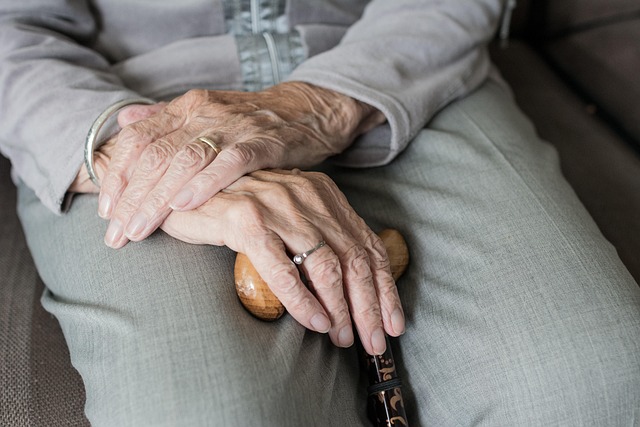End-of-life care planning, facilitated by an end-of-life attorney, is crucial for ensuring personal wishes are respected and care aligns with values. This process involves creating advance directives like living wills and durable powers of attorney, guiding communication between families, caregivers, and medical teams. An end-of-life attorney specializes in these documents, provides expert legal guidance, educates clients, navigates complex systems, and facilitates open dialogue to ensure a peaceful, personalized transition according to individual desires.
In today’s digital era, prioritizing compassionate end-of-life care planning is more crucial than ever. As we navigate life’s intricacies, understanding advanced care options becomes essential for ensuring peace of mind and respectful execution of wishes. This comprehensive guide delves into the critical aspects of end-of-life care planning, highlighting the pivotal role an end-of-life attorney plays in crafting personalized care plans that reflect individual preferences.
By exploring these key sections—Understanding End-of-Life Care Planning, The Role of an End-of-Life Attorney, Creating a Personalized Care Plan, and Ensuring Peace of Mind—we empower folks to make informed decisions.
- Understanding End-of-Life Care Planning
- The Role of an End-of-Life Attorney
- Creating a Personalized Care Plan
- Ensuring Peace of Mind and Respectful Execution
Understanding End-of-Life Care Planning

End-of-life care planning is a crucial process that involves thoughtful consideration and preparation for an individual’s final days and beyond. It’s a comprehensive approach to ensuring that one’s wishes are respected, and their care aligns with personal values and goals, especially when they can no longer communicate or make decisions for themselves. This planning goes hand in hand with advance directives, which allow individuals to express their preferences for medical treatments, life-sustaining measures, and other aspects of their care.
By engaging the services of an end-of-life attorney, one can navigate this complex landscape with expert guidance. These legal professionals help draft and implement living wills, durable powers of attorney for healthcare, and other essential documents that ensure autonomy and dignity during what can be a challenging time. They also facilitate conversations between families, caregivers, and medical teams to ensure everyone is aligned with the patient’s wishes, fostering a peaceful transition and respecting the unique circumstances of each individual’s journey.
The Role of an End-of-Life Attorney

An end-of-life attorney plays a pivotal role in ensuring that an individual’s wishes regarding their care and affairs at the end of life are accurately documented and respected. These legal professionals specialize in advanced directives, living wills, and power of attorney, allowing clients to make informed decisions about their healthcare, finances, and personal matters when they are no longer able to do so. By consulting with an end-of-life attorney, individuals can create comprehensive plans that reflect their values and preferences, ensuring a smoother transition for their loved ones during what can be a challenging time.
Moreover, these attorneys provide invaluable support in navigating the complex legal systems surrounding end-of-life care. They help clients understand their rights and options, ensuring compliance with state laws and regulations. An end-of-life attorney can also facilitate communication between healthcare providers, family members, and other stakeholders, fostering a collaborative environment that respects the client’s autonomy while promoting peaceful and compassionate care at the end of life.
Creating a Personalized Care Plan

Creating a personalized care plan is a compassionate and essential step in ensuring an individual’s end-of-life wishes are respected. This process involves deep conversations between the client, their loved ones, and an experienced end-of-life attorney. The goal is to understand the person’s unique needs, preferences, and goals, which may include medical decisions, comfort measures, and advanced directives.
An end-of-life attorney plays a crucial role in facilitating these discussions and translating them into a legally binding document. They help navigate complex legal aspects, ensuring the care plan aligns with state regulations and reflects the individual’s true desires. This tailored approach allows for a dignified and personalized experience, empowering individuals to have control over their care during their final moments.
Ensuring Peace of Mind and Respectful Execution

When planning for the end of life, having a comprehensive and compassionate strategy in place brings immense peace of mind. This is where an end-of-life attorney plays a vital role. Their expertise lies in guiding individuals and their families through the intricate legal aspects, ensuring that every detail is considered and executed with respect and care. With their assistance, you can have confidence in the knowledge that your wishes will be honoured exactly as intended.
By engaging an end-of-life attorney, you gain a trusted partner who understands the emotional sensitivity of this process. They facilitate open communication between family members, helping to resolve any conflicts or misunderstandings about care preferences and medical choices. This respectful execution ensures that every step aligns with your values and wishes, allowing for a peaceful transition during what can be a challenging time.
In navigating the sensitive topic of end-of-life care, having compassionate and expert guidance is invaluable. An end-of-life attorney plays a crucial role in ensuring your wishes are respected and your loved ones are prepared. By creating a personalized care plan, you can rest assured that your preferences will be carried out with dignity and peace of mind. This proactive approach allows you to focus on what matters most during this precious time.
